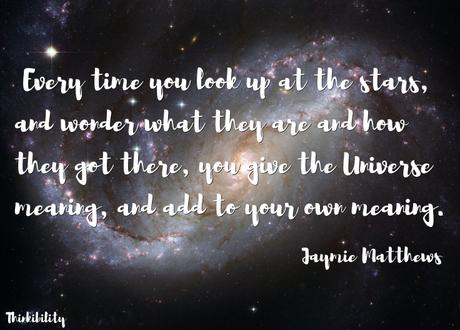"So if you want to know the truth about the universe, about the meaning of life, and about your own identity, the best place is to start is by observing suffering and exploring what it is. The answer is not a story." Yuval Noah Harari
"How do you live in an age of bewilderment, when the old stories have collapsed, and no new story has yet emerged to replace them?" What will keep us busy when our jobs become obsolete? A new quest for mening is required. In the future, virtual worlds may take over and socially-constructed systems of meaning could lose their meaning.
The aim of this series of posts is to sketch possible thinking steps that might help us to get a solution or at least a direction for one of today's urgent issues as identified by Yuval Noah Harari in the book 21 Lessons for the 21st Century (see the blog post Will our inventions make us irrelevant?).
Introduction to the challenge
The focus of the fourth 21 Century Challenge will be on meaning. People have been asking questions about the meaning of life since time immortal.
- Who am I?
- What should I do in life?
- What is the meaning of life
In the book it is explored as follows: Yuval suggests that in most cases when people ask about the meaning of life, they expect to hear a story.
Yuval believes that from a purely scientific viewpoint, human life has no meaning. Our actions are not part of a cosmic plan. Therefore any meaning that we give to our lives is just a delusion. Yet, it could be argued that the purpose of life has not been explored from a scientific viewpoint enough to conclude that life has no meaning. Regardless if life has a meaning or not, we are attached to it.
Approach to the thinking
In this challenge, we will use tools to break down the challenge into subquestions. In addition, the meaning of life also brings up the question of whether or not life exists elsewhere in the Universe. So we will also use tools to broaden the question. Connoisseurs of the Direct Attention Thinking Tools will recognize the tools for broadening perception: Other Peoples Views (OPV), Key Values Involved (KVI), Consider All Factors (CAF) and Consequence and Sequel (C&S).
You cannot buy, at least not yet, a cookery book with the recipes for the meaning of life but many of us turn to ideologies. The question has attracted attention from for example, theologists, philosophers and scientists.
- Why did so many people follow enthusiastically but blindly the main 20st century ideologies? What has been so attractive in them?
- What types of ideologies will emerge in the future?
- What kind of meaning of life will be derived from it?
- How will the ideas derived from the ideologis be spread and accessed?
The meaning of life as we perceive it is often derived from philosophical religious, and scientific inquiries about happiness, existence, consciousness and social ties.
- In what ways will advances in technology change meaning of future life?
- Is immortality possible?
- How will robots change our daily life and affect our ideas about the meaning of life?
The search for meaning is often described as an individual quest. New technologies, scientific discoveries and changes to our environment may change our values.
- Who determines what is a meaningful life?
- How might future changes in the opportunities a person has and changes in the environment that a person is associated with affect the meaning of life?
We invite you to do some digesting and preliminary thinking on the topics above.
Next week, we will post two questions regarding the future meaning of life, with a suggestion for using a thinking tool.
Meaningful thinking!

